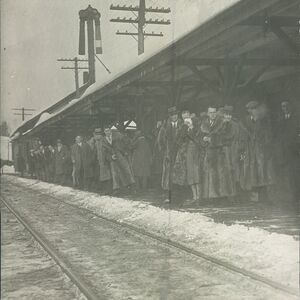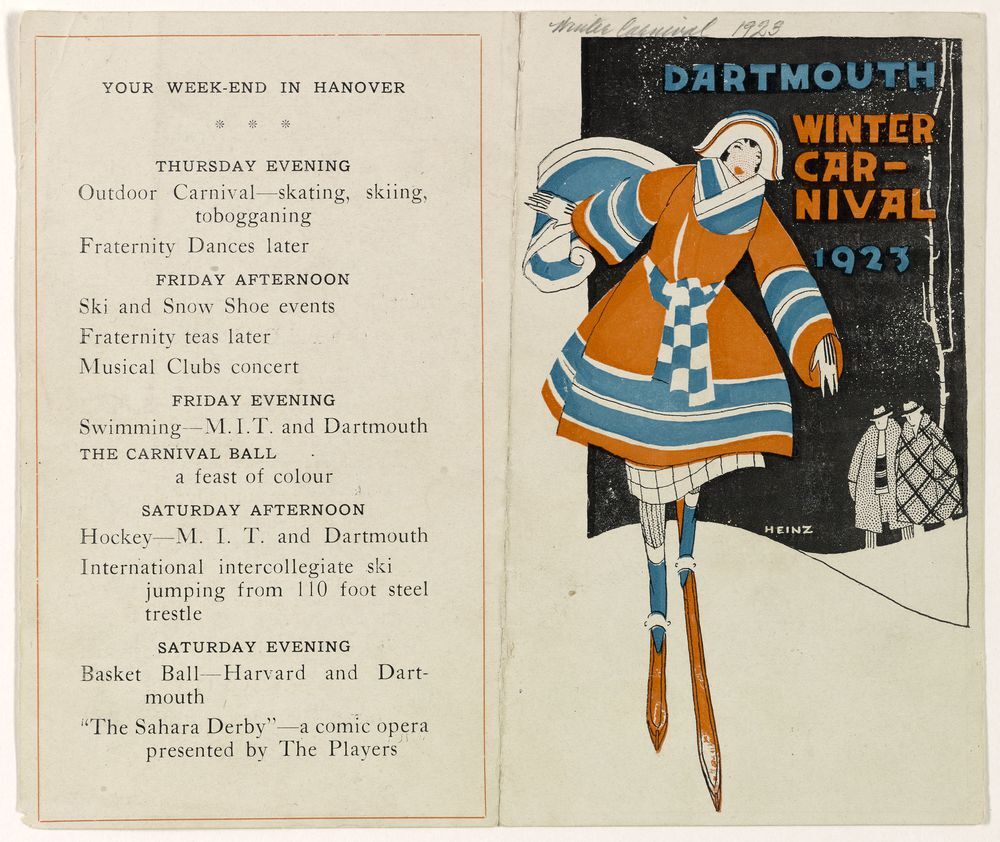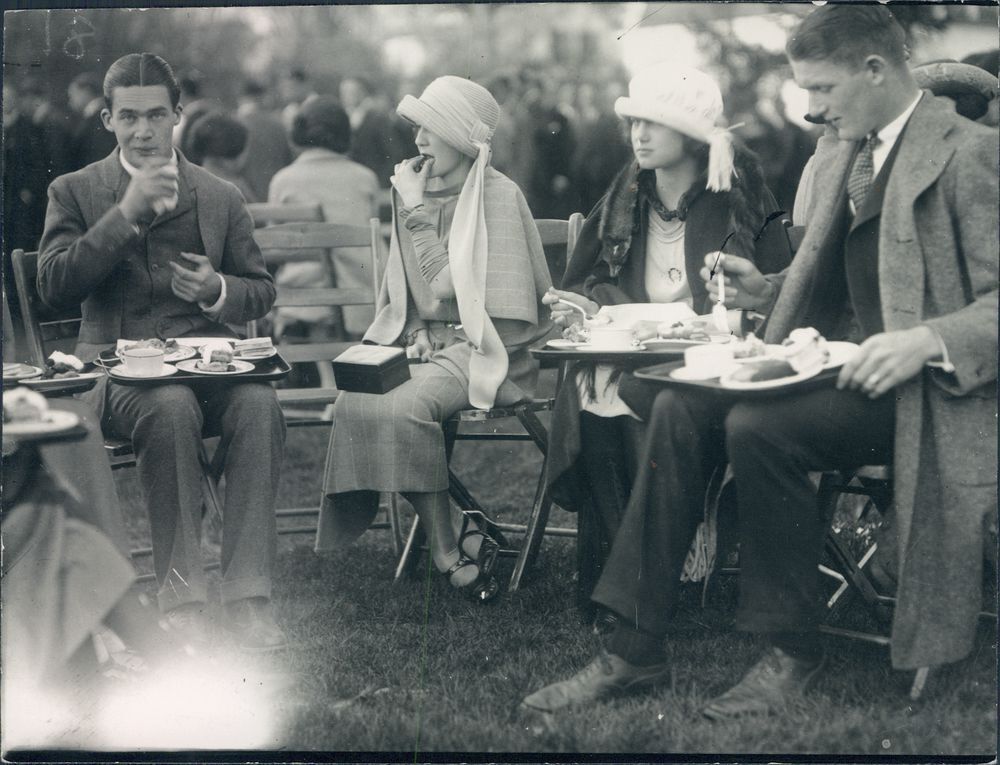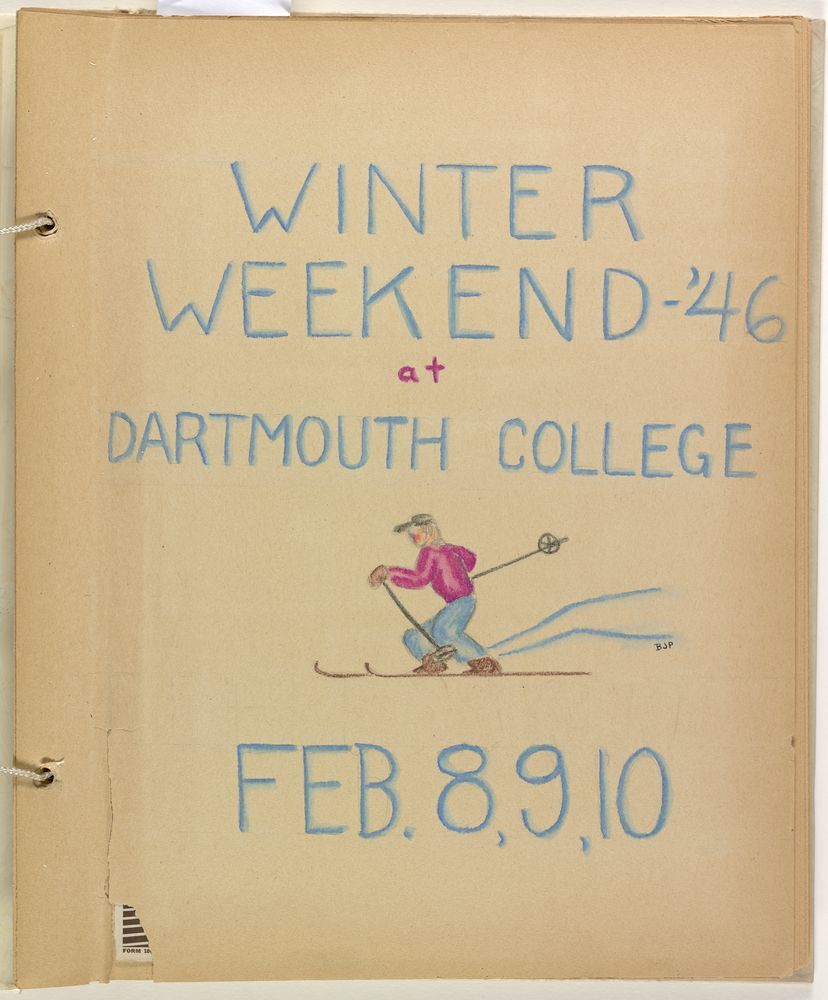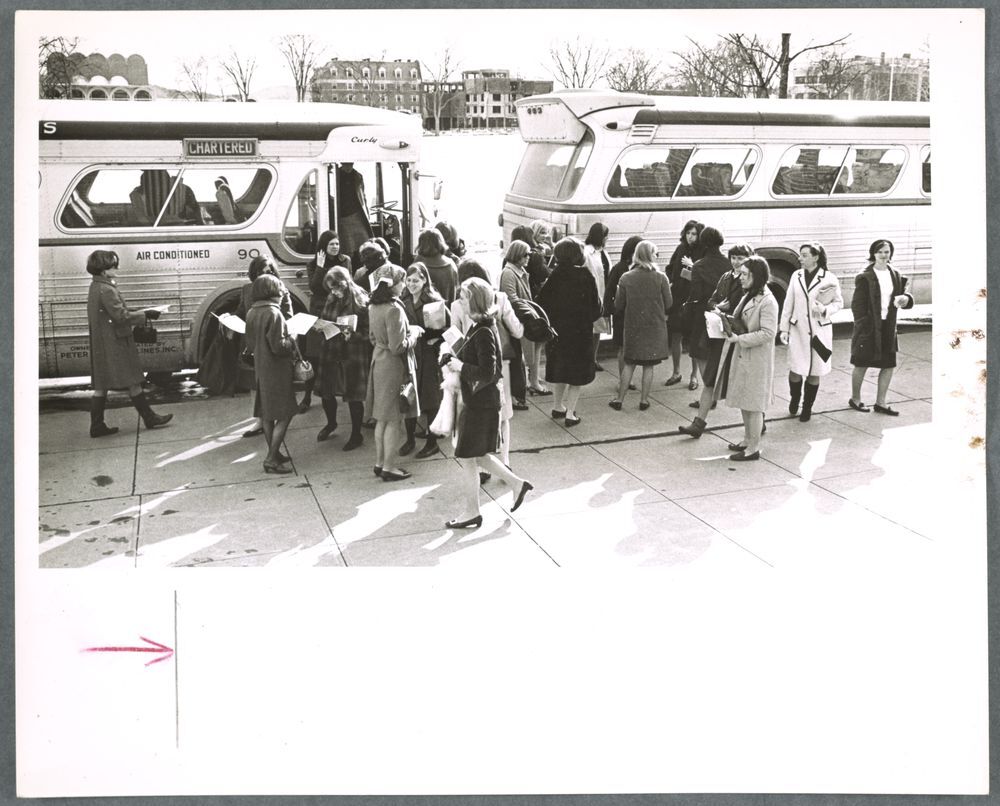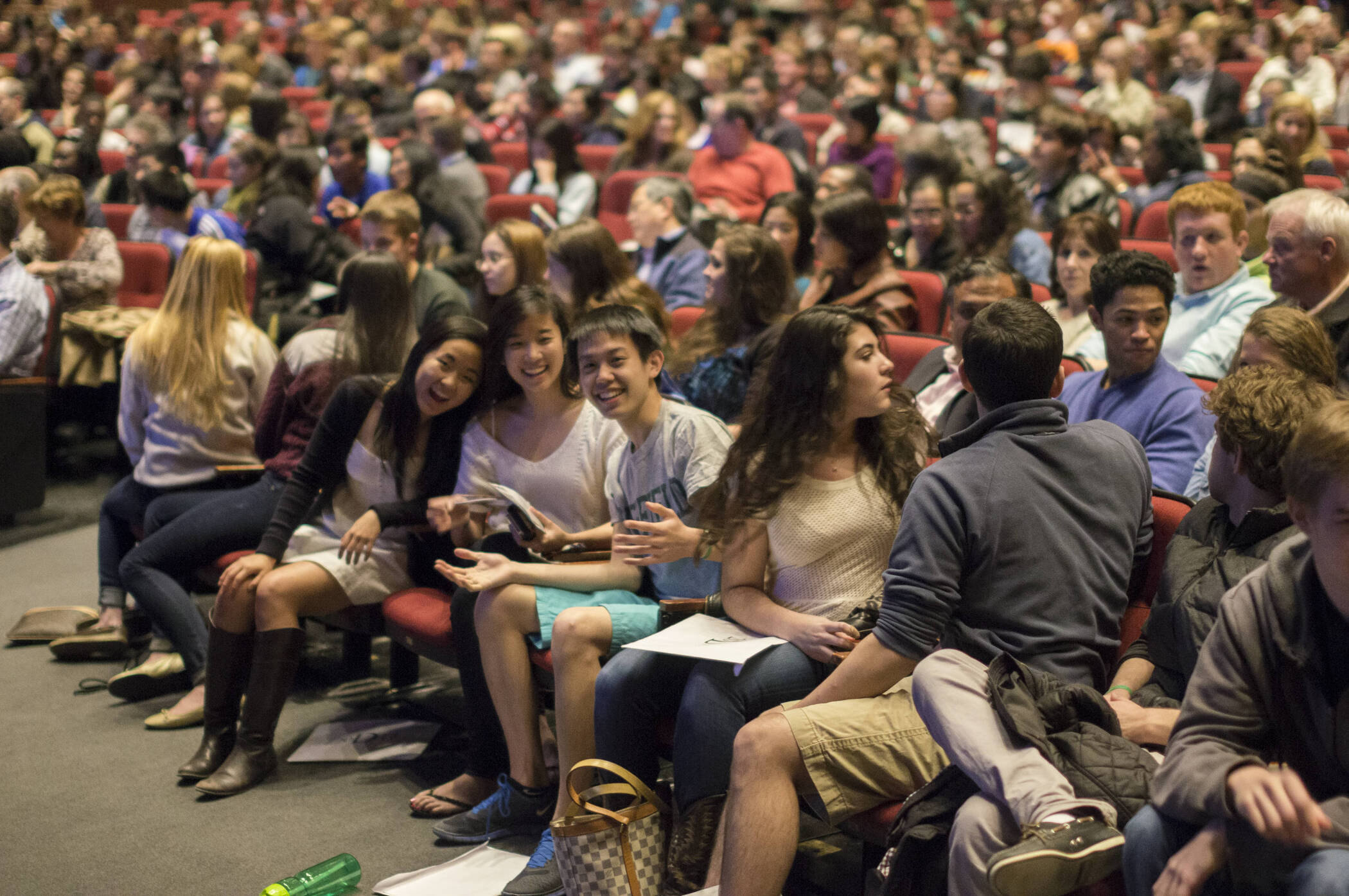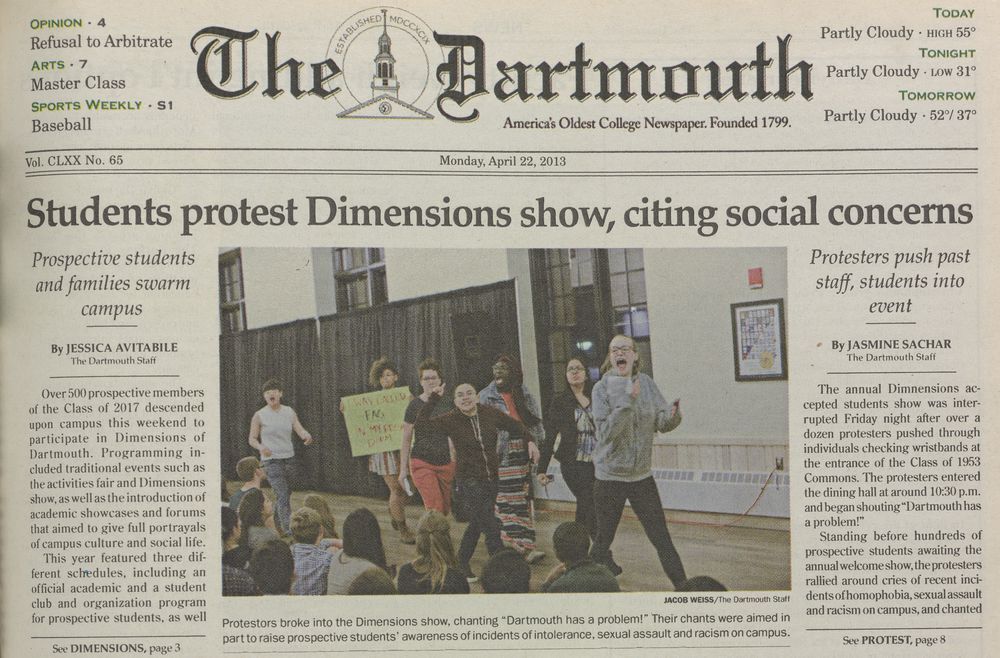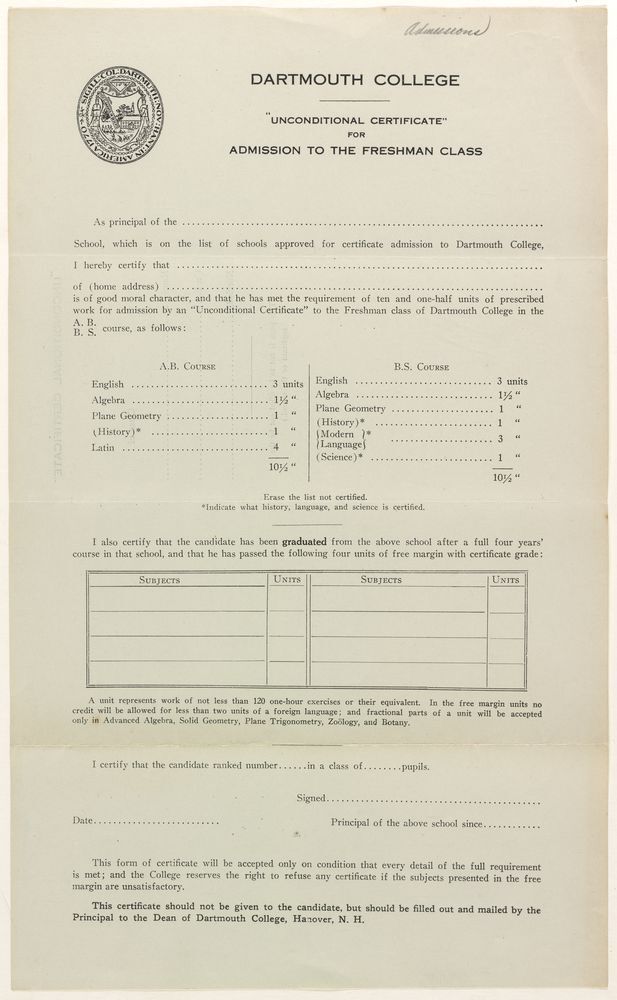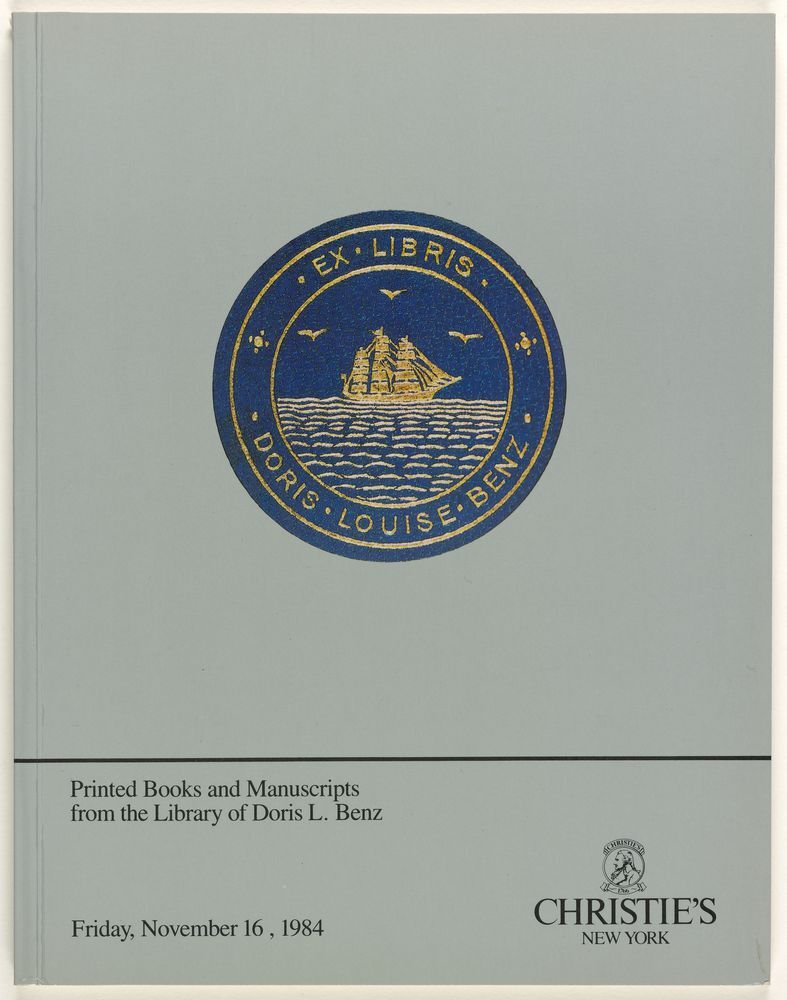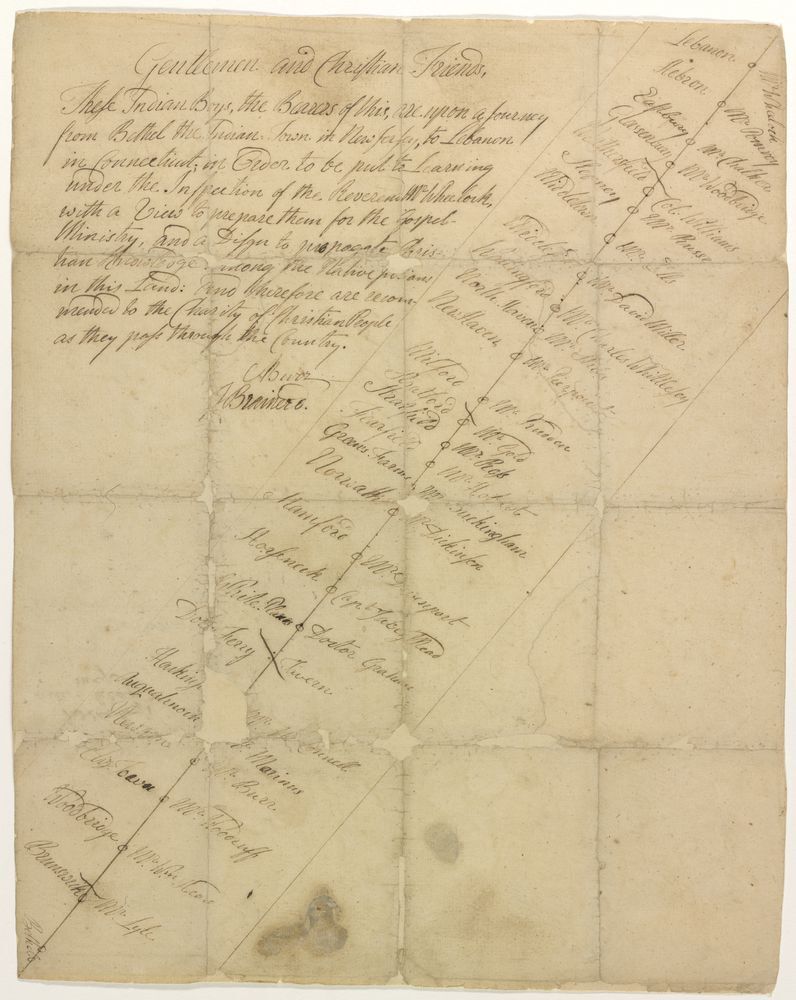Going to Dartmouth
Dartmouth has always been a destination—think of the high school students preparing their applications and dreaming of an acceptance letter. But, in the days before Dartmouth went co-ed, the big “date weekends” were also a major draw. House parties, homecoming, Green Key, and, of course, Winter Carnival (aka, “the Mardi Gras of the North”) would see special trains and buses full of women arriving from Smith, Vassar, Skidmore, Wellesley, and Mount Holyoke.
The natural beauty surrounding Dartmouth draws thousands of tourists each year, including one Doris Benz who was so smitten with the location she left the Dartmouth College Library an enormous endowment to support its rare book and manuscript collecting.
The same remoteness that attracted some, turned off or straight-up excluded others. A student at Wellesley complained of the complete lack of anything interesting in Hanover and advised her fellow students not to worry if it rained when they visited because, “there is nothing to go outside for.” Admissions policies have always been the biggest determinant for inclusion in the community: quota systems, single-sex, and with an almost complete lack of commitment to inclusivity prior to 1972, the student body, and Hanover itself, was shockingly homogenous for much of Dartmouth’s 250-year history.
Previous: Dislocation -- Next: Outdoors as Classroom

